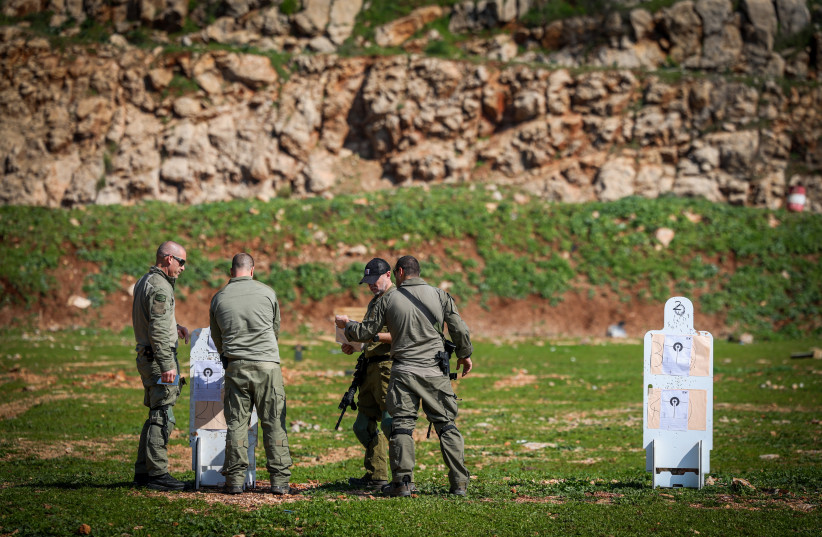While the war in Gaza rages on, much of northern Israel has been continuously hit by Hezbollah rocket fire, prompting residents to evacuate from their homes until further notice.
However, an IDF reserve unit has stayed behind to protect northern towns and is preparing for any possible scenario, including October 7-style infiltrations and combat with Hezbollah terrorists. IDF Online interviewed these reserve soldiers from the “Dvora,” or "bee" unit who work day and night to protect the northern border.
”Dvora,” a special forces reserve unit, began operating in northern Israel in recent years and was created with the goal of repelling terrorist infiltrations from the border. The unit is responsible for gathering as many forces in one area as quickly as possible. The unit is formally named “YATAM (immediate response unit) Galil,” but it received its unique, and more familiar name of “Dvora” after the late Deborah Drechler, who was killed in the Battle of Tel Hai in 1920.
How does one join this unit?
Joining "Dvora" is no easy feat, as the soldiers are very carefully selected. The first criteria is to be a northern resident that is committed to protecting their homes.
“The soldiers of the unit regularly train together and form a professional and tested group, so people with a deep sense of commitment to the north are needed,” the unit’s commander revealed. “Our ideal reservists grew up here, have family here, settled here.”

Because of this, the ranks of the unit are filled with veteran reservists from various units, specifically those with operational experience who are willing to meet the challenge. “The different military backgrounds from which the soldiers arrive bring many advantages,” Captain (res.) Dror explained. “Each brings his own knowledge and expertise. However, there are also gaps in combat methods, so we make sure to train every week to create a common language.”
Reservists mobilized immediately following Oct. 7
Captain (res.) Dror noted that “we feared that Hezbollah would be inspired by events in the south and attack at the same time, so we arrived very quickly,” he told IDF Online.
The reservists have not rested for a moment since October 7, and are responsible for patrolling the northern border to prevent terror attacks and infiltrations.
In early March, the reservists participated in a special exercise in the northern Golan Heights, which included simulated scenarios of infiltrating terrorists that sought to test the reservist's capabilities in neutralizing them as fast as possible.
The task at hand is clear to this group of reservists: in the event of an infiltration into northern Israeli territory, their job is to repel the terrorists. “If an event occurs in which Hezbollah forces succeed in penetrating Israeli territory despite all the roadblocks and defenses the IDF has set up, we will arrive quickly. We know this territory well; we will fight and cooperate with other units to direct fire.”
IDF Online reported that the soldiers in reserves face great difficulty as they are guarding their homes while their families evacuated.
“This attitude of ‘we stay as long as they need us’ is an attitude that accompanies all the soldiers in the Galilee,” the unit commander concluded. “This is what makes us professional. No one is forced to stay – yet we all do. There is a feeling of obligation to protect our homes, and it gives our unit the motivation to stay alert and give it our all."
